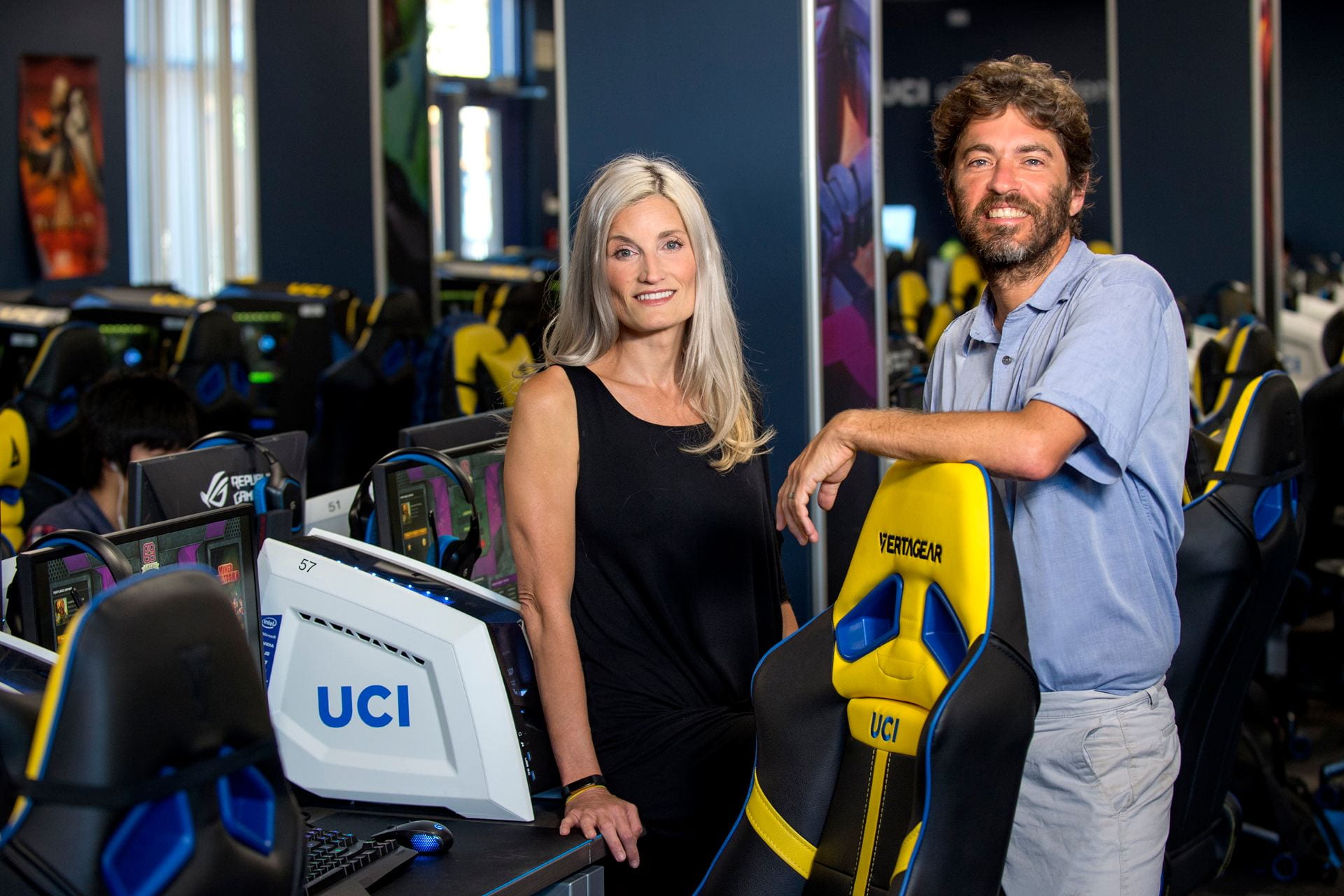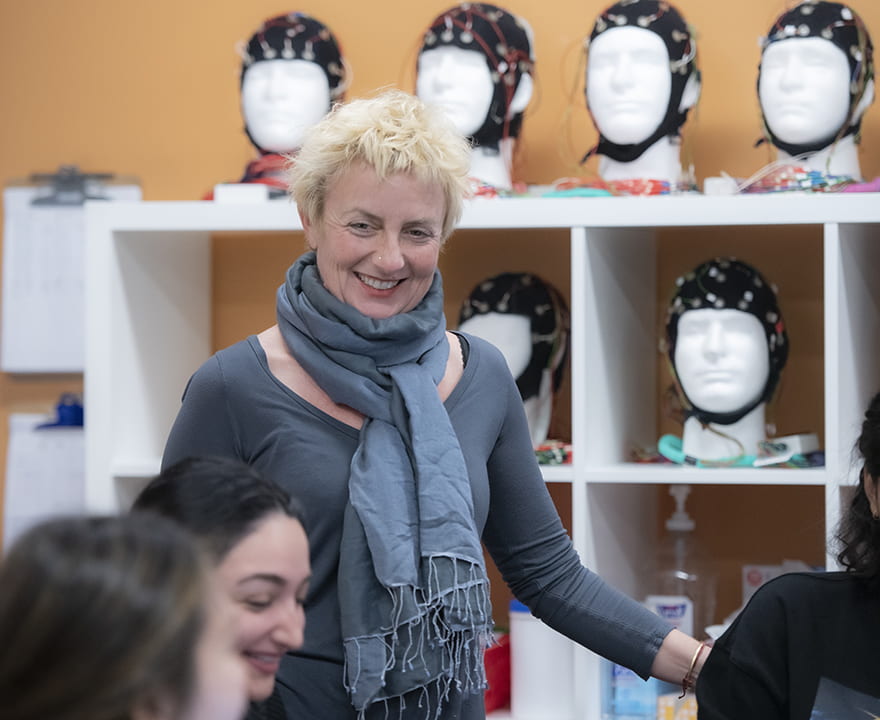Building better lives
When four members of the UC Irvine student chapter of Engineers Without Borders headed to Endana, Kenya, last August to see how they could best help the rural community, it proved to be a real-life pass/fail test in leadership.
“We didn’t know what we were getting into,” recalls Morgan Bailey, EWB chapter president and a doctoral candidate in environmental engineering. “Up to 70 percent of the people are unemployed. Many have tuberculosis. They drink mud for water. You find yourself asking, ‘What can I do?’ It kind of overwhelms you.”
The group decided to build a sanitation facility and latrines to help keep human waste from polluting the river and prevent water-borne illnesses.
“The river had extremely elevated levels of E. coli bacteria,” Bailey says. “You wouldn’t even want to touch it.”
The students’ willingness to look beyond textbook answers and study a community’s needs firsthand makes the EWB chapter unique — and more likely to succeed, says the group’s adviser, Richard Matthew, UCI associate professor of international and environmental politics and founding director of the Center for Unconventional Security Affairs.
“They were smart to go there and carefully assess the situation on the ground, because now they have a good chance of having the kind of impact they would like to on the community,” Matthew says.
Dubbed the “Blueprint Brigade” by TIME magazine, EWB-USA has more than 250 chapters nationwide, including 180 on university campuses. Members — not all of them engineers — help communities in developing countries with sanitation, water, renewable energy and other critical needs. Founded in fall 2009, the UCI chapter has more than 30 members; Endana is their first major overseas project.
“These students are learning what it’s like to bring an engineering mindset into a rural environment. That’s the kind of experience you can only get outside of the classroom,” Matthew says.
During their three-week stay in Kenya, the EWB members — Bailey, urban & regional planning graduate student Jenna Tourje, environmental engineering graduate student Matthew Jeung and engineering alumnus Michael Maxwell ’04 — evaluated the Endana secondary school’s sanitation facilities and rainwater catch system. They also conducted a community health assessment, interviewing more than 50 households in five villages.
In addition, they studied the air quality inside the residents’ huts and decided to develop prototypes for indoor stoves. Women in the village currently cook indoors, where smoky air causes respiratory infections and long-term health problems.
“They complained that their lungs hurt, their eyes hurt. They took it as a normal part of life,” Bailey says.
Because their work involves public health, education and other issues, EWB welcomes members from other disciplines. They’re not just a group of engineers who build a project and leave.
“We’re not only building latrines, we’re educating the community about maintaining them, and we’re trying to get them to understand why these are important to public health,” Bailey says. “We’re teaching the children about proper sanitation. That’s why our chapter has students in education as well as public health and urban planning. Engineering is only one component.”
Besides building better latrines and other infrastructure, EWB members act as goodwill ambassadors, forging friendships in faraway countries.
“EWB has a positive impact on the way people in developing countries perceive Americans, and the way we perceive them,” Matthew says.
Bailey, an experienced traveler, said that he never felt so out of place as he did when he first arrived in Africa. But he soon found himself connecting with the community.
“When you sit down and talk with a family, all of your differences fall away,” he says. “You simply see a family, and it no longer matters if they’re living in a mud hut.”
Armed with their research, the students constructed a prototype latrine on campus last month to prepare for their return trip to Kenya this summer, when eight members will build the project.
“EWB affords students opportunities they don’t have here,” Bailey says. “They not only gain technical expertise, they begin to understand life outside of the U.S. They also learn how to work as a team and actually produce something. For many, it’s the first leadership opportunity they’ve had.”
Other campus organizations, including the Flying Samaritans, Global Brigades and PRIME-LC, also allow students to participate in global outreach.
“The university is a great platform for entrepreneurial students to go out there and make a difference,” Matthew says. “That’s why all of these efforts at UCI put students out in the field — it’s the only way to cultivate the type of knowledge you need to be a leader.”
Related Links
- Engineers Without Borders – USA
- Center for Service in Action
- The Henry Samueli School of Engineering
Originally published in ZotZine Vol. 3, Iss. 9


